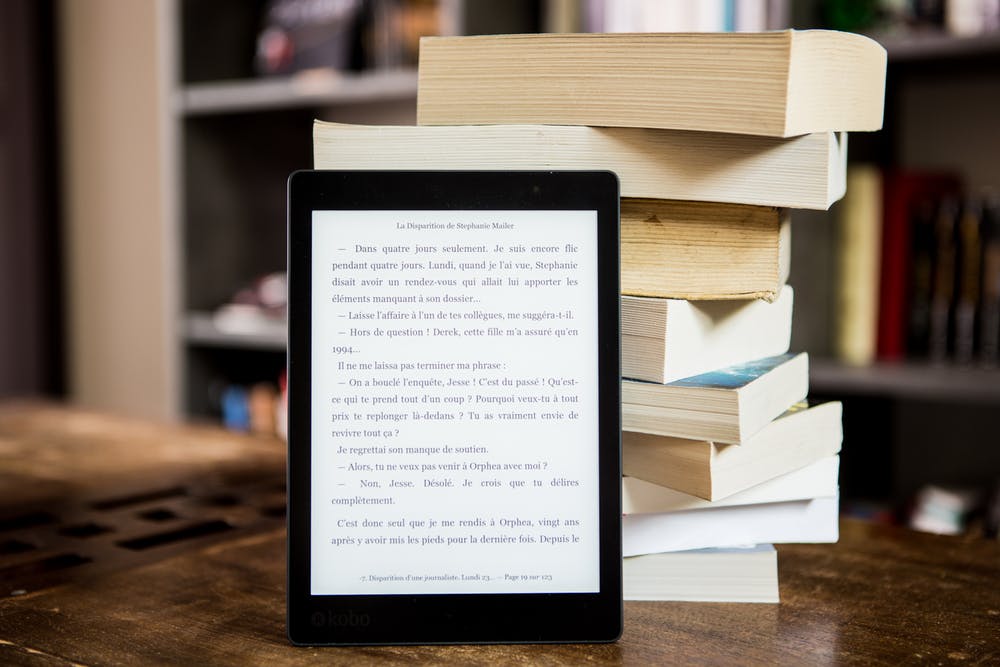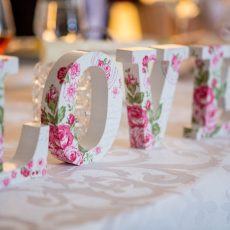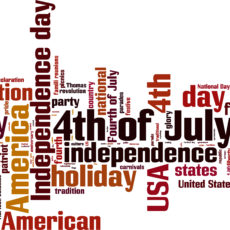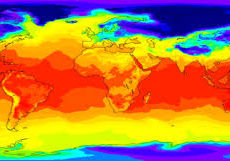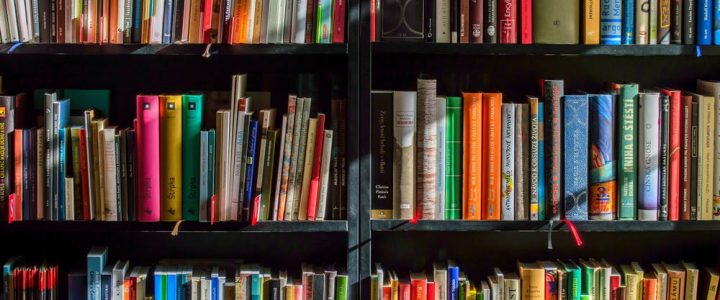
We hope that you’re getting comfy with the new and necessary restrictions on getting out and about. It’s a time we can learn new things, re-connect with board or card games, and of course pick up that book, be it electronic or paper, that we’ve simply not had time to get into.
So here’s our Top 10 suggestions for books to read to get a little more acquainted with environmental issues (which will unfortunately still be waiting for us when we all step back outside).
The Upcycle: Beyond Sustainability — Designing for Abundance, by William McDonough and Michael Braungart, 2013
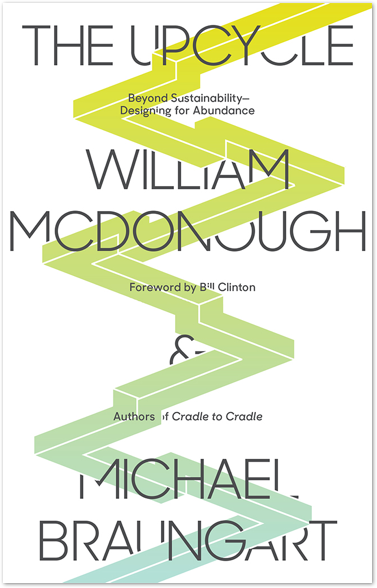
This is a follow up to the 2002 debut from the authors, Cradle to Cradle (which is often cited as a ‘seminal’ sustainability book). In this original book the authors, one of whom is a chemist and one who is an architect, call for another Industrial Revolution, suggesting that right from the inception of a product, there should be much thought put into its afterlife. As is in nature. The Upcycle is precisely a sequel – continuing that thought process and exploring even more examples and success stories where this ideology has been put into action. They would like to see the end of the word ‘Recycle’, as this process really don’t solve anything. The answer instead, lies in better design. Like carpets which can clean the air surrounding them. This is a positive, creative, innovative journey to a world where ocean pollution and using toxic chemicals daily isn’t part of the picture.
There is no Planet B – A Handbook for the Make or Break Years, by Mike Berners-Lee, 2019
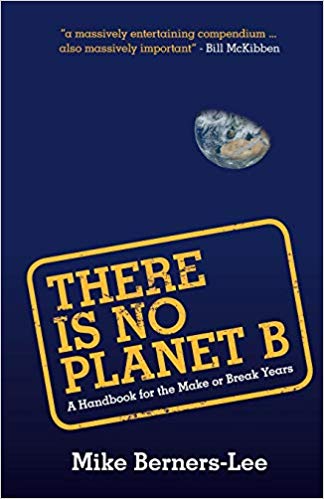
I’m sure you’ve lost count of the number of times this statement has been painted onto placards during climate strikes. That really represents how resoundingly stark this observation is. Save for the exceedingly wealthy perhaps relocating to Mars in decades to come, this is the only planet humans can inhabit. So truly, hadn’t we best try to save it? Enter Berners-Lee, in his third and recently published book, who offers a map for us. His take on the plastic crisis, the climate crisis, the hunger crisis, and other large threats to happy human civilization include some startling facts and figures, and a little bit of humor. It’s going to make you think, it’s going to make you laugh, but moreover, it’s going to leave you with some more inspiration on things you can be doing every day in your lives to make a positive difference and ensure these are the ‘make’ years.
Drawdown, edited by Paul Hawken, 2017
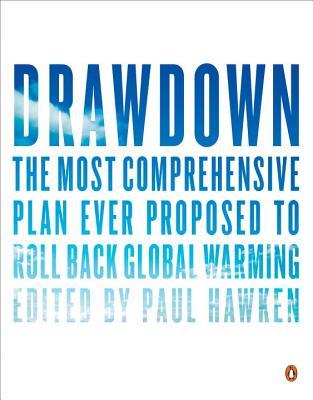
This is absolutely another ‘must read’. This book describes the 100 most effective solutions to global warming. It’s that simple. This book researches and lays out ideas which are already in place, well understood, analyzed based on peer-reviewed science, and are expanding around the world. It explores the history, costs, savings and carbon impacts, all in a way which is easily accessible to the reader. And covers ideas which you may be familiar with, like clean energy innovations, and some you’ve never heard of. Arguably, the greatest thing about this book is that the ways we can drawdown on our carbon emissions already exist! Get into this book for some refreshingly positive reality.
The Future We Choose: Surviving the Climate Crisis, by Christiana Figueres and Tom Rivett-Carnac, 2020
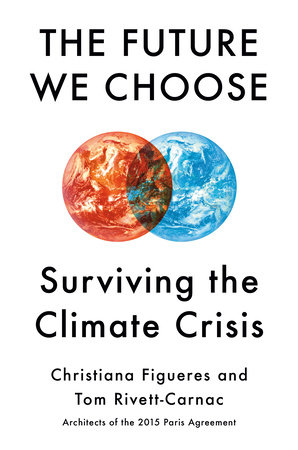
Practical. Optimistic. Empowering. Honest. Cautionary. Determined. Actionable. Inspiring. In other words, something you really want to read right now! The authors were the architects of the 2015 Paris Agreement, so they really do know a thing or two about changes necessary to mitigate climate change. They offer two possible worlds to the reader, in the year 2050: one which will be upon us if we fail to meet the Paris Agreement targets; or the much better one we could have, if we were to heed the warnings. Now. And that’s definitely a main message: act NOW. So in a very helpful fashion, they’ve even laid out for us the 10 most effective things we can each do to make a positive difference and ensure we land on Option B as mentioned above. Christiana conveys her trademark feeling of being “optimistically outraged”, and delivers an excellent read. I expect you will be left echoing this complex emotion, desperate to put into play everything you can to choose the better outcome.
The Story of Stuff: How our Obsession with Stuff is Trashing the Planet, our Communities and our Health – And a Vision for Change, by Annie Leonard, 2011
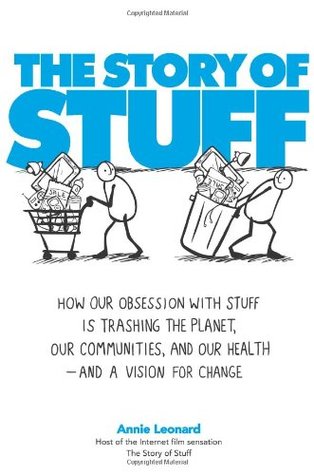
Phew, that’s quite a title! And the heavy reading doesn’t stop there. This book is a follow up to a short animated documentary, also written and narrated by Leonard. It was a huge success, so she expanded all her concepts in this book. She takes a close, uncomfortable, often behind-the-scenes look at materials manufacture, along the entire lifecycle: extraction, production, distribution, consumption and disposal. And what she discovers about the stuff we buy is both frightening and disappointing. The lengths we go to, only to create something which intentionally has a short expiration date is shocking. And when it reaches said date, where is this ‘away’, to where we throw stuff? The overconsumption we’re addicted to will see an end to this world, there’s no doubt about that. But Annie would prefer that overconsumption to stop, instead. So she offers her reader some ideas to make that happen. We can take action, and if we do, it’s not too late. This is a particularly good book if you’re in the early stages of your sustainability journey.
Inconspicuous Consumption: The Environmental Impact You Don’t Know You Have, by Tatiana Schlossberg, 2019
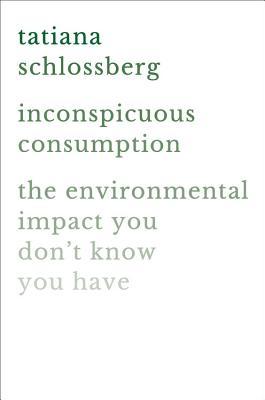
Fancy some dark humor and dry wit with your eco-lessons? This is one for you! The book explores 4 seemingly unconnected facets of your life: fashion, food, fuel and the internet/technology; and demonstrates that they are actually very much connected indeed. You’re probably already aware that climate change is a complex issue – but be prepared for that concept to grow. Ever considered the link between a cashmere sweater and increasing desertification in Mongolia? Exactly. Schlossberg is a former NYT science writer, so has taken her research seriously. But to her credit is able to communicate in non-science-y terms, making her call to action accessible. While it would be easy and obvious to place the burden of guilt on our, the consumers, shoulders, when tackling the environmental atrocities we unleash in order to quell our need to buy stuff, this is not the sole path that Schlossberg takes. While we are implored to think more about our purchases, thereby doing more with less, there is no denying the author’s finger pointing at corporations and governments. Whoever is to blame, the chance for change lays with us, the consumer; the voter. This is an interesting and empowering read.
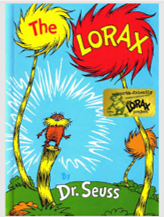
Bare with me. Yes, it’s a children’s book. Yes, it was published in 1971. But it’s genuinely SUCH a well-constructed story with necessary environmental lessons, that it stands both the test of time and reader’s age. I’ll admit that Dr. Suess might not be for everyone – his characters can be less than appealing, and his rhyme a little challenging – but for anyone who appreciates what I consider to be genius story-telling, this is a must read. Not just once, when you were a kid. But maybe annually, as a fantastically illustrated reminder of the perils which await if we continue to be so careless with our natural environment. It’s remarkable to me that Dr. Suess had such clarity on greedy, short sighted human behavior all the way back in 1971.
On Fire: The (Burning) Case for the Green New Deal, by Naomi Klein, 2019
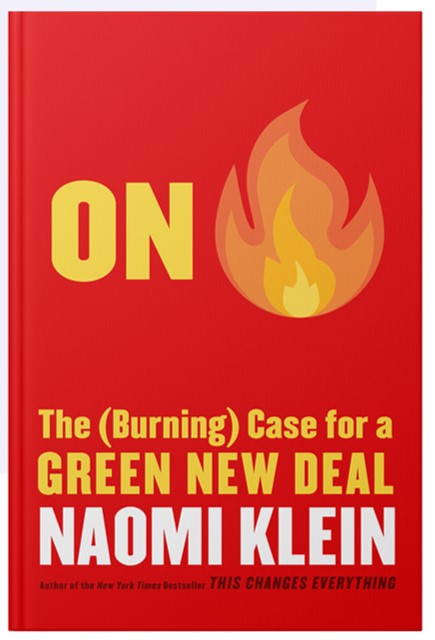
We (well…scientists and a select group of very wealthy businesspeople) have known for more than 3 decades that we (the rest of us) were approaching a point of no return in regards to the carbon emissions spewing into the atmosphere, and the irreversible damage those emissions are doing to…every living thing on this planet. For the most recent 20+ years of that time, we’ve had Naomi Klein boldly and unapologetically chronicling our demise into Money Vs Everything Else (including our arrival to what we now call The Climate Crisis). She speaks pointedly about environmental issues, but also broadly about other human injustices across the globe. Often the two concepts are linked. This book takes us on a journey around the world to delve deeply into a myriad of topics in easily accessible essay form. The urgent call to action transcends the individual subjects: the need for coordinated, global, people-centric, political and economic actions, from the very ‘top’ of society to the bottom. The stakes are high, and so is the tide of a rising political movement.
2040: A Handbook for the Regeneration, by Damon Gameau, 2019
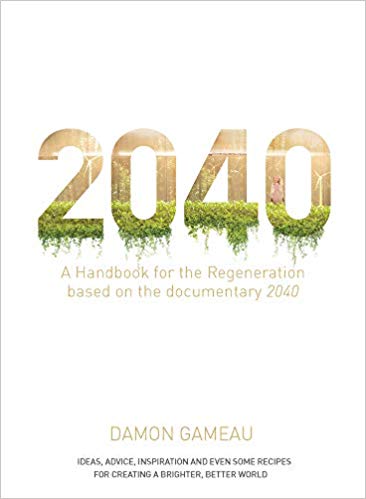
You may have read my glowing review and synopsis of the film 2040. So you won’t be surprised to learn that I also rate this accompanying book very highly. It is a literal guide to incorporating different and better activities and methods into your daily life, to ensure you have a more positive impact on the planet. Damon’s optimistic vision for the future is one which IS achievable, if we all try a little harder. He truly believes that as complex and overwhelming the climate change issue is, if we’re shown how to change our behaviors, we will – each small step really does culminate in large scale impact. Gameau has a lovely story telling manner, so the book is easy and pleasant to read. His MO is inspiring rather than chastising, which is pretty necessary right now.
The Conscious Closet: The Revolutionary Guide to Looking Good while Doing Good, by Elizabeth L. Cline, 2019
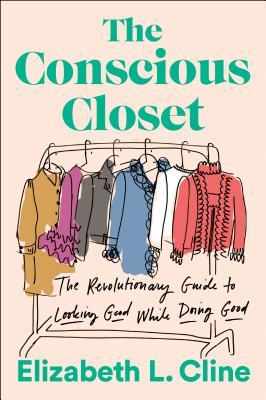
This is an incredibly simple and useful guide to dressing sustainably, with a strong call to action for the fashion industry. It’s a follow up to Cline’s debut, her investigation into the fashion industry’s dark secrets in regards to the labor force and the environment, Overdressed: The Shockingly High Cost of Cheap Fashion. But this contains fresh research and actionable tips to create a streamlined, ethical and sustainable wardrobe. Being more mindful and intentional about our clothing purchases is key, whether that’s from a thrift store or (well researched) store. You’ll finish the book with exciting ideas and the ability to look at clothing with fresh, wide open eyes.

While books are a great resource, when it comes to fashion what would be even better is personalized advice and guidance, right? Well in this current climate of having more downtime, why not re-acquaint yourself with your own wardrobe? Our favorite sustainable fashion guru, Kathy Kearns, who is the founder of Third Law and chatted to us about sustainable fashion, invites you to participate in her highly acclaimed online program (which includes live coaching!), The Sustainable Wardrobe Academy. Oh, and you get a crazy-good 20% discount! Use the code SPRING20 and learn how to activate the power in your wardrobe and discover your true signature style!
Okay…so I’m going for 11…
Silent Spring, by Rachel Carson, 1962
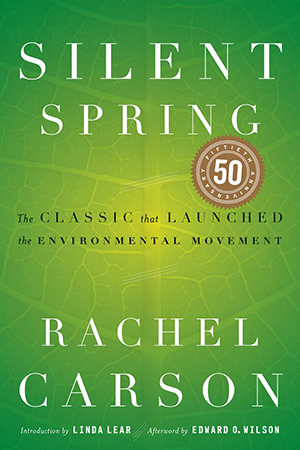
This book has many times been called ‘pivotal’ and ‘landmark’, and was undeniably instrumental in commencing the environmental movement. The author, a biologist and ecologist, was widely criticized for this work, which was labelled as fiction by some. And this, despite Carson spending 6 years researching the subject: the harmful properties of DDT and the damaging effects on all life which it came into contact with. After its publication she then had cause to spend years defending her research…which in fact led to the banning of this substance! We have much to be thankful to Carson for, and we can surely learn from her – we must all be active participants in the political landscape which surrounds us.
This list is not exhaustive on the subject of sustainability or climate change readings. But we think it’s a good start. And there’s a mix of science, philosophy and straight up advice, which we think will keep you interested. Like you, we’re housebound too – so we’re open to (and in fact, we’re outright asking for it!) feedback and your thoughts. Perhaps you wouldn’t recommend a particular one of the above for some reason, and perhaps you’ve got others in this genre which you would suggest. Drop a comment below!
